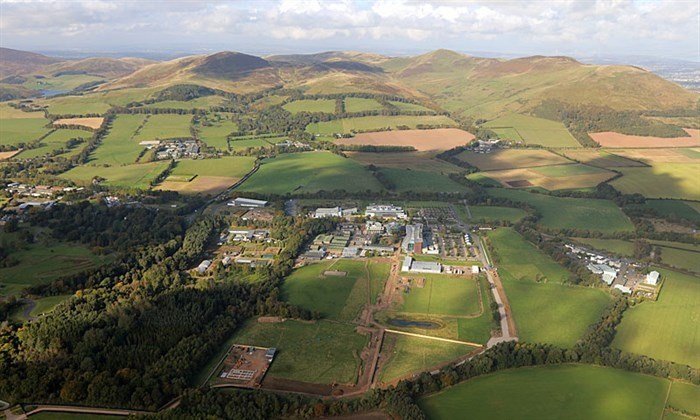Review of Local Development Plan for Midlothian - implications for Midlothian Science Zone
The Midlothian Local Development Plan 2 is a policy framework for Midlothian and this Business Forum allowed our Partners and businesses to highlight to Council Planning Officers what is important, and essential, to support the growth of business and development 'in the zone'.
The current Midlothian Development Plan (MLDP) was adopted in 2017. Since then the legislation on development plans has changed due to the Planning (Scotland) Act 2019. A significant change is that Strategic Development Plans are no longer in force, and the National Planning Framework is now part of the development plan.
Midlothian Council seek to adopt a replacement in 2026. The first stage of this process is 'evidence gathering' in order to submit an Evidence Report to the Scottish Government, to prepare the MLDP.
Engagement with key economic sectors, including organisations and businesses in the Midlothian Science Zone, is a crucial part to this evidence and future planning, and attendees were invited to highlight areas of concern and put forward their opinions to Midlothian Council representatives.
Aerial view of Midlothian Science Zone with the Pentland hills
On Tuesday 5th September, Midlothian Science Zone Business Forum guests gathered for networking and a light lunch at Bush House on Pioneer's Edinburgh Technopole before a round table discussion with Colin Davidson and Grant Ballantine, Planning Officers with Midlothian Council.
The MLDP Team have been gathering information since Spring 2023 to create an evidence based report to present to Scottish Government Ministers in early 2024, in the hope that a proposed plan will be published for review in 2025. They emphasised the importance of highlighting issues which businesses and industries are facing backed up with empirical evidence for inclusion in the report.
Topics discussed centred on the restrictions for growth 'in the zone' based around failings in infrastructure, particularly power supply, waste disposal and transport thus creating barriers to growth and hinderance to development.
Crucially these restrictions also have an affect on Government net zero targets for businesses in Midlothian, for example due to the cost implications that are hindering access to alternative power supply and further hampered by the increasing demands from housing developments.
In Scotland there is a general lack of opportunity for the growth of the science sector and One Health focussed organisations. Midlothian Science Zone attracts much of the emerging talent and innovative entrepreneurs but if Midlothian Science Zone, as a centre of excellence, is not able to keep up with the demand we will lose key industry players to science parks located south of the Border or locations in Europe.
Midlothian Science Zone can be an easily commutable location for local employees and the wider area if the infrastructure supports this with public transport and road links.
We are fortunate to have the physical land to develop in Midlothian Science Zone and provide the necessary space for new and growing businesses, but crucially we need all the working infrastructure to support this. Examples of this include The Pioneer Group, which has a 20,000 ft² building almost completed as a Phase 2 development, with another 20,000 ft² construction in the pipeline on Edinburgh Technopole. The University of Edinburgh also has an ongoing development Master Plan.
In summary, the demand, the enthusiasm, the capital and the plans are available if the infrastructure would allow these to progress.
Your input is important...
Midlothian businesses and tenant companies are encouraged to share their growth analysis over recent years and include those potential businesses and opportunities which they have been forced to turn away due to lack of developed space, impacted by the infrastructure to support this.
We encourage our Partners and business representatives who attended the Forum to contribute data and evidence for this report as discussed to Emma McCallum.
Any other business or interested parties are invited to join the Midlothian Council mailing list by emailing ldp@midlothian.gov.uk.

